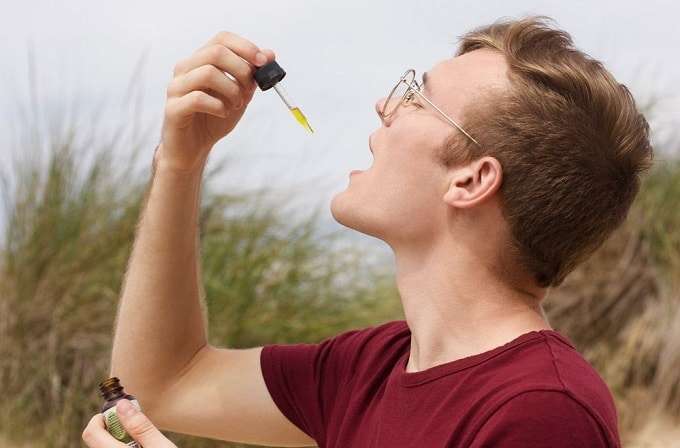CBD (cannabidiol) has taken the world by storm.
This non-psychoactive cannabinoid is known to be beneficial for a variety of health conditions, including chronic pain, stress and anxiety reduction, reducing inflammation, reducing seizures, and more.
CBD is all-natural, non-habit forming, and has very few serious side effects.
Although CBD is all-natural and isn’t known to contain any serious side effects, at CBD School we typically recommend talking to your doctor before starting to use CBD oil for yourself.
Cannabidiol is still a chemical compound that interacts with your body and mind, and we believe that when taking anything to improve your health that talking to a professional beforehand is the best way to go.
Talking to Your Doctor About CBD
Do Your Research
While CBD is legal in the US, it can still be an intimidating subject to speak with your doctor about.
Before you bring the idea of using CBD oil up with your doc, do your research.
Why are you interested in taking CBD? Are you looking to relieve chronic pain? Reduce anxiety?
Go in armed with as much knowledge about your interest for using CBD.
If you’re nervous to talk to your doctor, having some knowledge about your interest will increase your credibility…and maybe your doctor’s willingness to talk to you about how CBD could benefit your health.
Be Honest and Open
There has been a stigma surrounding cannabis for many years.
Although CBD is legal in all 50 states and medical cannabis is permitted in 31 states and Washington DC., it can be an especially intimidating subject to bring up to your doctor.
Remember though, your doctor is human too.
And the more honest and open you are about why you’re interested in trying CBD, the more receptive your doc is likely to be.
Don’t Be Afraid to Ask Questions
Your doctor is there to listen to your needs.
Don’t be afraid to ask them any questions you can think of about taking CBD.
Maybe you’re wondering if CBD will get you high (it won’t), or if it is beneficial to your particular condition.
Make a list of questions before you go in and don’t be shy to ask away. You’ll likely find your doctor is more receptive than you might think.
Possible Drug Interactions with CBD
While CBD is considered one of the safest supplements you can take, understanding the possible risks associated with certain drug interactions is vitally important.
Discover: Cannaflower CBD
Understanding possible interactions with other drugs comes down to understanding the cytochrome P450 enzyme system.
Found in the liver, the cytochrome P450 enzyme system is what’s responsible for metabolizing any possible toxic compounds you put in your body.
This includes over 60% of any drugs you’ve consumed.
CBD is known to inhibit the enzyme system’s ability to metabolize some drugs, which is known to increase the time a drug is processed in a person’s system.
This poses an issue because the inhibition of processing can lead to higher amounts of some drugs in your system.
In turn, this can lead to unwelcome side effects, as well as possible overdose.
This means that any drugs processed by the cytochrome P450 system could possibly interact negatively with CBD.
Some of the drugs that use the P450 system include (but aren’t limited to):
- Anesthetics
- Antiarrhythmics
- Angiotensin II blockers
- Antibiotics
- Antidepressants
- Anti-epileptics
- Benzodiazepines
- Beta blockers
- Calcium channel blockers
- HMG CoA reductase inhibitors
- HIV antivirals
- Immune modulators
- NSAIDs
- Oral hypoglycemic agents
- PPIs
- Prokinetics
- Steroids
- Sulfonylureas
This list is not exhaustive, nor does everything on this list necessarily warrant an adverse interaction when CBD is taken.
It’s best to speak directly to your doctor if you’re taking any of these medications to ensure that taking CBD won’t negatively impact any current medications you might be taking.
If you do end up taking CBD along with other meds, your doc might want to monitor your blood levels.
Final Thoughts

Your interest in taking CBD is the first step in what has the possibility to revolutionize your health.
While your best bet would be to speak with a doctor who specializes in cannabis medicine, we understand medical marijuana doctors aren’t available in every state.
If you’re doctor isn’t on board with the idea of CBD or you’re not comfortable speaking with them about your interest, try talking to your local pharmacist, who can likely give you all the information you need right over the phone.
The main questions for your pharmacist would be about drug interactions with CBD or cannabis products.
Your pharmacist should have access to the current list of medications you are on.
Because of ever-increasing evidence and personal accounts of CBD’s benefits for several health conditions, more doctors are open to the non-psychoactive cannabinoid than ever before.
Talking to your doctor about adding anything to your current health routine is important, CBD included.
And with the recent FDA approval of Epidiolex, your doctor or specialist can now discuss options for even using a prescription CBD as opposed to an over-the-counter option if you decide to go that route.
